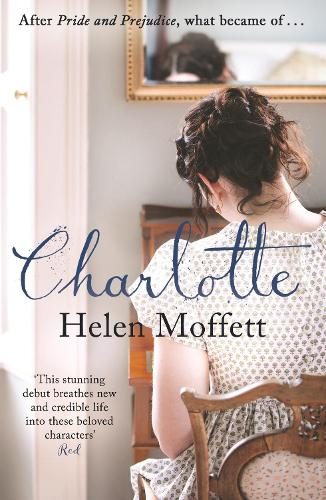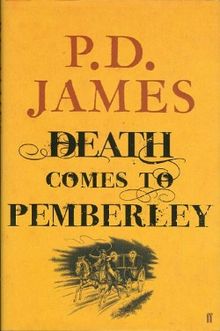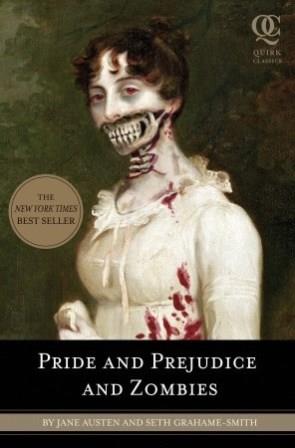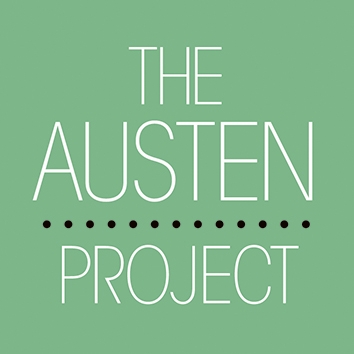
‘I’m not a romantic you know. I never was.’
Charlotte Lucas’ well-known rejection of Elizabeth Bennett’s emphasis on romantic love is put to the test in this re-imagining of the world of Jane Austen’s ‘Pride and Prejudice’. Could Elizabeth have been wrong in her prediction that Charlotte will regret her choice of husband? Readers of Austen’s regency-era novel will know that Eliza has been wrong about important matters before, (*cough* Wickham,) but they know equally well that life with Mr Collins will mean a lifetime of listening to him scrape and bow to Lady Catherine de Burgh, his honourable patroness.
While readers of the original story will also know that Elizabeth is forced to acknowledge that, as Charlotte Collins, her friend manages her husband and her house well, Austen herself implies that, once the novelty of ‘her parish and her poultry’ had worn off, the sensible young woman would regret her pragmatic choice. In ‘Charlotte’, Moffett explicitly explores the trade off Charlotte has made and the long term consequences, while imbuing her regency heroine with feminist sensibilities and introducing her to the romance she insisted she didn’t need.
What’s it about?
Charlotte Lucas is a spinster of 27, plain in looks and poor in means, reliant on her family and deeply aware of her position. When the opportunity comes to marry a rather silly but well connected clergyman, she seizes upon the chance, despite the horror this provokes in her best friend, Lizzy, who has ‘higher’ (i.e. romantic) expectations for her own marriage. Frustrated by her friend’s censure and wilful blindness to the necessity of a dose of pragmatism for women as well as men, Charlotte is determined to make her marriage a success and Moffett shows us how she does this.
Moffett introduces us to Charlotte’s present life before explaining how she reached this point, retelling key events from ‘Pride and Prejudice’ from Charlotte’s perspective and intermingling these accounts with Charlotte’s developing friendship with a musician. In fact, Charlotte is purportedly sharing her remembrances with a stranger, which seems dubious when they begin to include intimate details about her feelings and her body. Finally, Charlotte broadens her horizons, in a development that seems to rather undermine Moffett’s initial convictions about her choices.
What’s it like?
Surprisingly sad. Often startlingly, explicitly feminist, given the regency setting. Initially satisfying for Austen fans, but ultimately frustrating for me.
This feels like a novel of two halves. First, Moffett seems to set out to prove that Charlotte was right: her management of her husband and her children brings her much satisfaction, despite the story opening with the sad loss of her youngest child. In fact, this loss allows us to see Mr Collins at his best; his love for his child and his care for his wife is evident. He might be silly, but he is kind and able to keep a reasonably paid position, and as Charlotte begins her duties as a minister’s wife, she realises that not all wives are so lucky to have this bare minimum. There’s even a sexual spark between the pair, although Charlotte knows that Mr Collins would be reluctant to admit that their marital relations were in any way unrelated to the God appointed task of procreation!
Then Mofett introduces an exotic stranger and the promise of romance, though surely when you are already reasonably happily married, romance is not quite the right term…
Final thoughts
I enjoyed the initial portrait of Charlotte and her life, despite the sad opening, and felt that Moffett successfully wove a very powerful tale of grief. Throughout the novel, Charlotte’s loss of Thomas is a central part of her life, and of course, as he is her only male child, there are practical consequences, too.
I liked Charlotte’s tenacity and skilful handling of Mr Collins and Lady Catherine de Burgh, but I felt that Charlotte’s interactions with the musician spoiled the original sentiments of the novel. Like so many authors who have adopted Charlotte’s character, it seems that, ultimately, Moffett couldn’t quite believe that Charlotte could be content with her choice of husband.
Some readers may find Charlotte expresses surprisingly feminist ideas, given her era, and many may also find the depiction of Anne de Burgh rather startling. Anne, who spent most of Austen’s novel being languid and poorly, is a much more interesting character here, though one person’s ‘interesting’ may well be another person’s ‘wholly unconvincing’!
A different take on Charlotte’s fate for fans of ‘Pride and Prejudice’.


